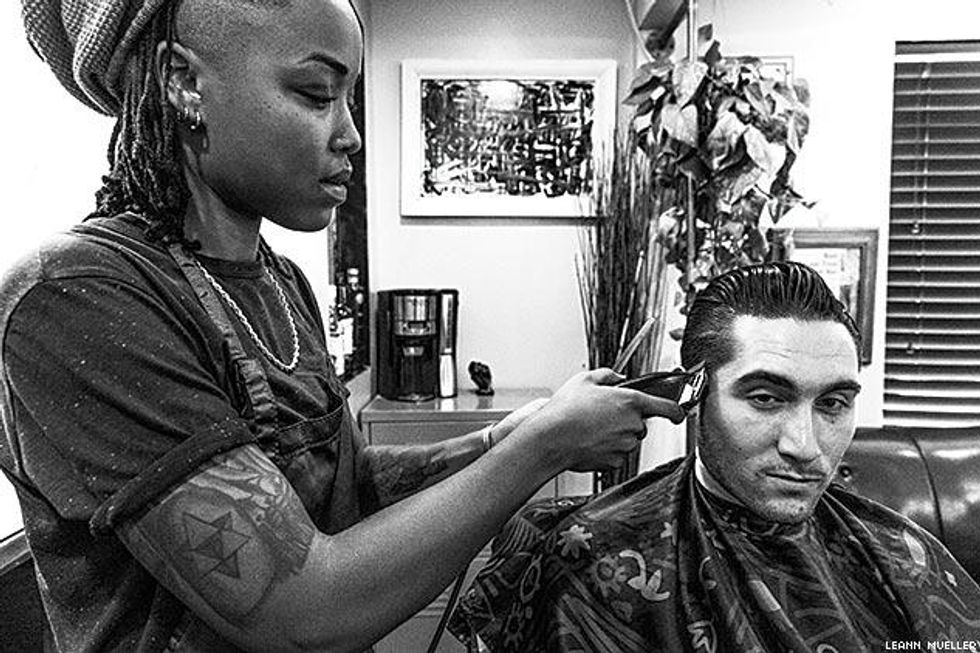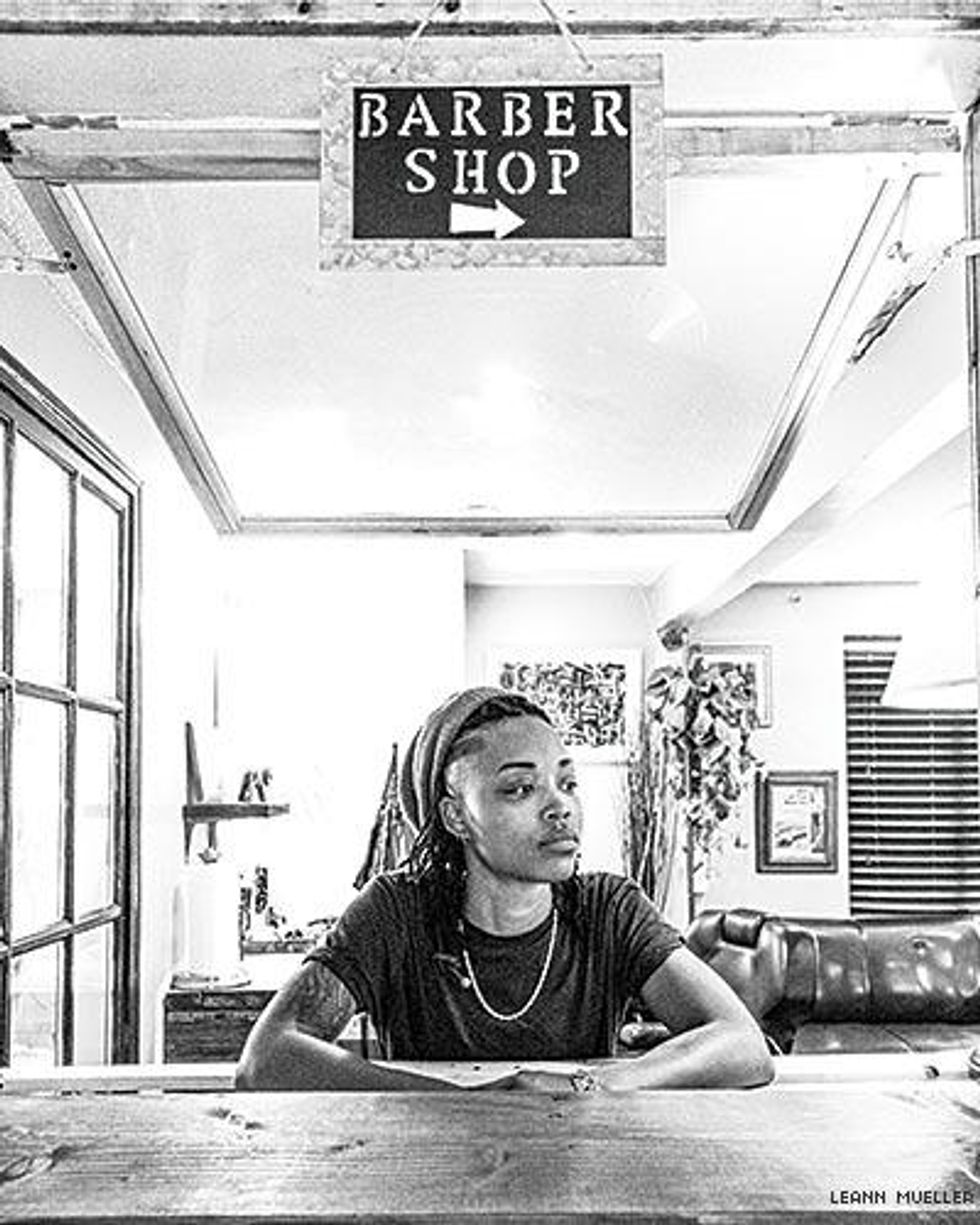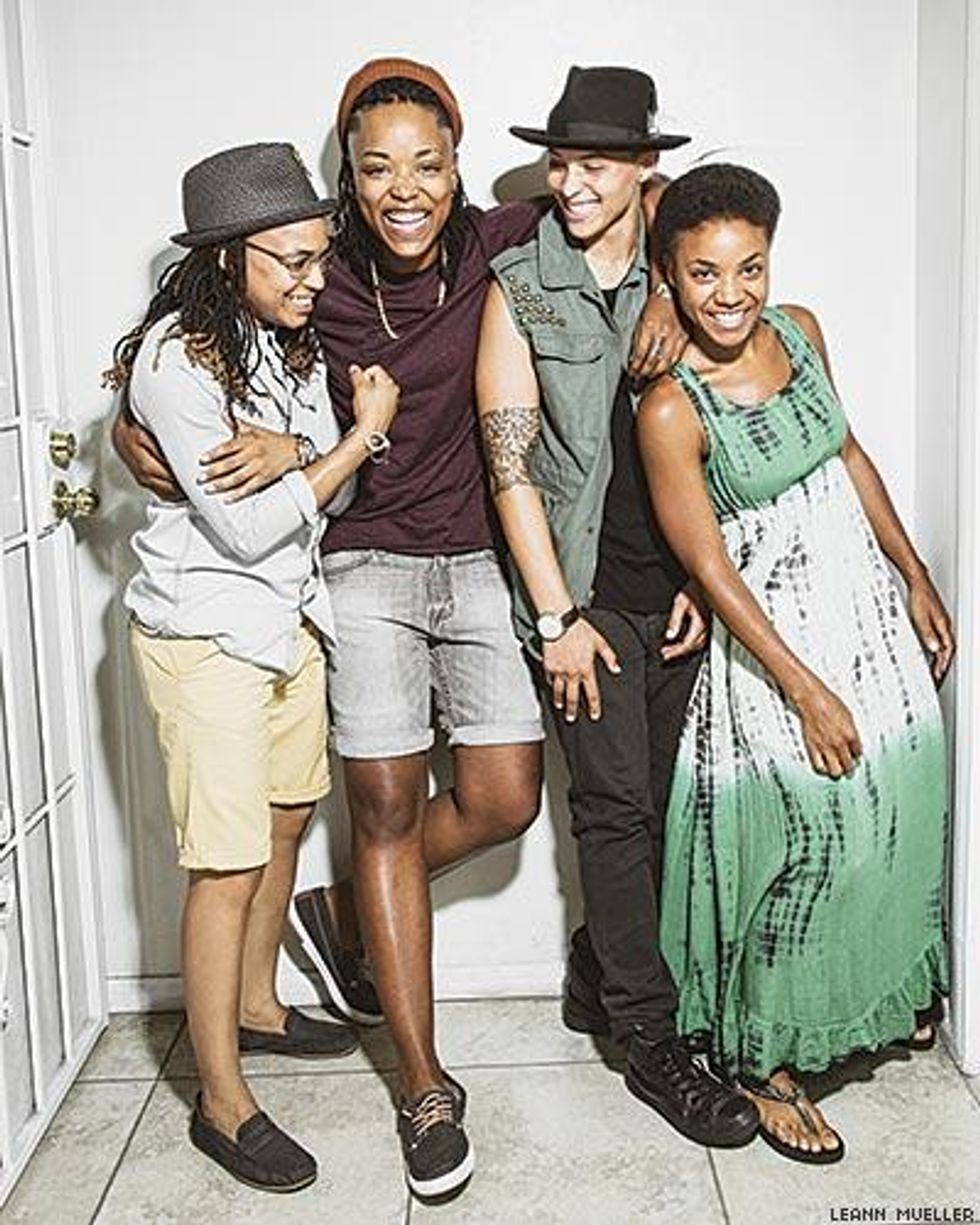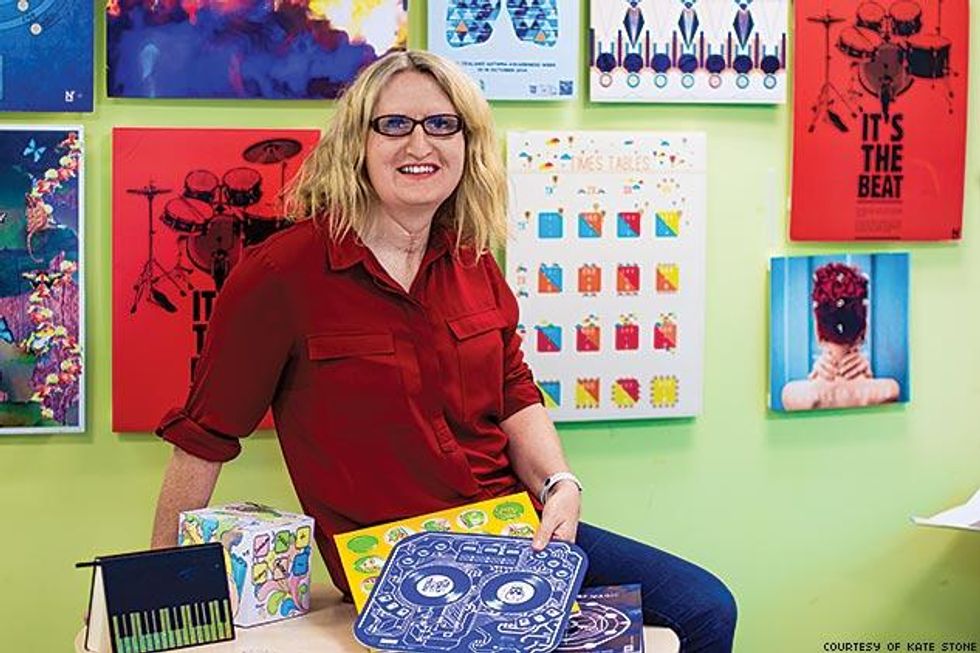
These are the LGBT people at the cutting edge of business, science and technology, and activism.
September 02 2015 5:30 AM EST
By continuing to use our site, you agree to our Privacy Policy and Terms of Use.

These are the LGBT people at the cutting edge of business, science and technology, and activism.

Barber, Entrepreneur, 35
Los Angeles
The African-American barbershop community is a tough place to be a woman. It's an even tougher place to be a lesbian -- just ask Ayesha Harris. After years of working at traditional and "high-volume" barbershops, Harris needed more than just a change of scenery. "I'm always the only woman," Harris says of her past experiences. "Any other female barber I talk to, they're always the only woman."
So the Long Beach, Calif., native took matters into her own hands. In 2013, she opened Ninth Chapter Barbershop in the Fairfax district of Los Angeles, roughly a mile north of the strip of restaurants and shops known as "Little Ethiopia."
"We're a collective of all female barbers," Harris says proudly. "We're all lesbians."
That distinction makes Ninth Chapter unique not only in Los Angeles but quite possibly in the entire country. Despite its being the first shop of its kind, Harris says the reception has been "amazing."
"Everybody loves the space -- it's cozy," she says. "I get a really good reception on vibe, time management, and overall shop talk. Because some of these guys, these girls, they can't go into the [traditional barber] shop and talk about some guy they met on Grindr last night."

"I cater to the gay community, the trans community, openly, and with open arms," she says. "Everyone is welcome in my barbershop."
But there is one kind of person Harris says she won't tolerate at Ninth Chapter: "No homophobes allowed. That's actually a rule here."
"I purposely talk loud about whatever I want to, if I feel someone's in here that isn't a part of the community," she adds. "Because I want you to know, if you want to be included in this shop, then there is no room for any ill will because you don't like what we're saying."
Like any barber or stylist, Harris spends a good deal of her time playing "therapist" to clients seated in her chair. But there's something about the space itself, and the environment she's cultivated, that makes it feel uniquely safe for LGBT people. In fact, when she left her former workplace just down the street to start her own shop, some of her clients came with her -- with several coming out to her for the first time only when seated in a chair at Ninth Chapter.
"I really wanted to build a collective, and a base of people that knew [who we were] so that we can have our queer base, and then when we open it up to the public, we have established that this is our space," Harris explains.
That plan worked. For the first two years of business, Harris eschewed traditional advertising, building a client base solely on word of mouth. She contends her chair was full that entire time -- and continues to be, now that she has placed a sandwich board outside the shop welcoming walk-ins for the first time.

Just in time for Pride month, Harris installed a modest, black-and-white spinning barbershop pole outside the second-story shop's window. There is no signage visible from the street, and the shop shares a wall (and occasional customer base) with the vegan tattoo shop next door, whose owner, James Spooner, co-founded the AfroPunk music festival.
In keeping with her vision for a tight-knit, community-focused establishment, Harris says she "just recently" opened up the collective to other barbers, preferring to cultivate the shop "slowly, particularly with who I want." At press time, Harris works alongside three other barbers, though the shop was just approved for an expansion into the unit next door, which will make room for three additional barbers. That expansion is slated for completion in October.
After that, Harris wants to launch franchise locations throughout the greater Los Angeles area. She envisions the Fairfax location being the "flagship" shop, while hoping to expand to Long Beach, downtown Los Angeles, the San Fernando Valley, and one day, even to Oakland in the Bay Area.
But no matter how many franchises pop up in the future, Ninth Chapter's mission will remain the same. Staffing them primarily with LGBT barbers, Harris wants each location to earn its reputation as "your local gay barber shop."
In the Ninth Chapter, she stresses: "You can just come in, and it doesn't matter what you're doing: white, black, trans, straight, gay, it doesn't matter. You want a haircut? Come get a haircut." -- Sunnivie Brydum
 Caroline Dessert
Caroline DessertThrough the heroic efforts of Immigration Equality, an advocacy organization based in New York, many of these queer refugees are finding their way to safety and stability. The nonprofit, founded in 1994, specializes in securing freedom for LGBT asylum seekers and detainees by helping them maneuver our complex legal system.
The brainpower behind Immigration Equality is executive director Caroline Dessert, a self-identified queer Latina who hails from El Centro, Calif., a rural community that borders Mexico and Arizona. In her early youth, she saw firsthand the unfair conditions undocumented immigrants and LGBT people lived under in her small town.
"People had strict notions of what a boy or a girl should look like or how they should act," Dessert says. "I saw people get bullied and beaten up when they didn't conform to those gender norms. And I saw people without papers get thrown into the back of a van and just disappear in 120-degree heat." Those formative experiences inspired her social justice activism and career path.
Before earning a J.D. from UCLA School of Law, she rallied for women's reproductive rights as a staffer at Planned Parenthood. While working for the San Diego LGBT Community Center, she campaigned against Prop. 8 as a regional field director. She went on to work as California's deputy attorney general in the Public Rights division, until late last year, when she took the reins at Immigration Equality. She's already increased its caseload by 45%.
The organization wins an astonishing 98% of its cases. Currently, it has about 550 clients in 25 states and more than 90 law firms in its pro bono network.
While Dessert remains cautiously optimistic about President Obama's new immigration policies, she notes that the proposed changes do nothing to ensure that LGBT people are detained safely. "Transgender women are housed in male facilities, where they are 13 times more likely to be sexually assaulted. And gay men are 10 times more likely to be sexually assaulted than the general population."
"I met with Jeh Johnson, the secretary of the Department of Homeland Security," she says, "and really pushed for him to come to a better solution. It's a human rights atrocity for people who flee persecution to be exposed to that same persecution here on U.S. soil." --Steph Fairyington
 Dr. Kate Stone
Dr. Kate Stone"I develop technology that allows us to interact with everyday things in a very different way," says the self-styled creative scientist. And she's not wrong. Through experimenting with paper, conductive inks, and miniature circuit boards, Stone has a vast portfolio of creations that includes paper drum kits, interactive posters, and newspapers with embedded audio.
"I say it's like taking what is a digital soul -- touch, connectivity, and data -- and putting it into the heart of everyday beautiful things," says Stone. But despite the resounding success of her work, there were many who thought it would be worthless and that the government shouldn't fund it.
"Honestly, when I set out, I said I'm going to do things that my science friends look down on, laugh at, and say have no value," says Stone. "And people quite literally did that. I just have to carry on in the face of all that negativity because I believe with the connection I have inside me that what I'm doing is the right thing. I knew without a shadow of a doubt if I used my creative ninja skills, used what's around me, and focused on my goal, I could change what people thought I could not change."
It's indicative of the way she operates. On New Year's Eve 2013, she was gored by a stag on the way home from a pub in the Scottish Highlands, a freak accident that shattered her throat. The story was picked up by British tabloids, many of which ran transphobic headlines and hounded Stone's family for information about her transition.
Rather than ride it out, Stone sought change and took up the issue with the Press Complaints Commission (PCC) with the intention of changing the way the media report transgender issues. Five months later, the PCC's ruling saw six national newspapers agree that "sex swap" headlines were unacceptable, while Stone now sits on the Editors' Code of Practice Committee, advising figures such as Paul Dacre, editor of the Daily Mail.
Despite the way she was treated, her commitment to change was never driven by anger. "A lot of people describe themselves as an activist, and I think often it can come from a place of anger which is well justified," says Stone. "But using an emotion such as anger is just not effective for me. I feel I have a lot to be happy for, and if I can tap into those emotions of happiness, compassion, and understanding, then I can be more effective at bringing about change." --Chris Godfrey
 Kasha Jacqueline Nabagesera
Kasha Jacqueline NabageseraShe was someone who wasn't sure why everyone, from her schoolmates to the teachers, was bullying her, why she was expelled from five schools, threatened with corrective rape, beaten by teachers, and forced to wear "gender-appropriate" clothing. Nabagesera was naive, she said, until one day, after being suspended from her university, she decided to find out why her sexuality was such a big deal for other people.
At the age of 21, in 2001, she became a leading voice of the LGBT movement in Uganda. When she joined, the LGBT movement in Uganda consisted mostly of Sunday picnics to build solidarity. Then, during the 2000s, American evangelists began exporting their brand of vitriolic homophobia to Uganda. The former accountant began to study law and human rights, began helping to create a social movement for the benefit of LGBT Ugandans.
The costs were high. In 2007, she was harassed, threatened, and attacked after media appearances in which she urged respect for and tolerance of homosexuals. She could no longer take the bus. She began moving from house to house, never staying too long in one place. In the ensuing years, she was almost arrested during police raids and outed on the cover of popular tabloids. Her friend and fellow LGBT activist, David Kato, was killed with a hammer.
In 2014, the Anti-Homosexuality Act was signed by Uganda's president. The act prohibited sexual relations between members of the same sex, as well as the support or promotion of such relations. When the act was invalidated, Nabagesera tweeted: "I am no longer criminal today. We have made history for generations to come. Speak OUT now."
Today, Nabagesera is one of the activists remaining from the early days of the LGBT movement in Uganda. Still, she is encouraged by the number of young Ugandans joining the cause. "The future looks very bright, no doubt about that," she says.
She and a dozen others in the community worked to create Bombastic, a 72-page magazine sharing the stories of LGBT Ugandans. She also helped open Uganda's first gay bar and organized its first Pride parade. She has won many awards and prizes, but she seems most proud of how the community has helped build safe spaces for LGBT Ugandans kicked out of their homes, jobs, and schools. Many of these Ugandans, unlike Nabagesera, did not have supportive mothers and allies.
"I had the choice to stay in my comfort zone and live my life without caring what others were going through," she says, "but my genes do not have such blood to not care, so I choose to care." --J.P. Lawrence
Charlie Kirk DID say stoning gay people was the 'perfect law' — and these other heinous quotes